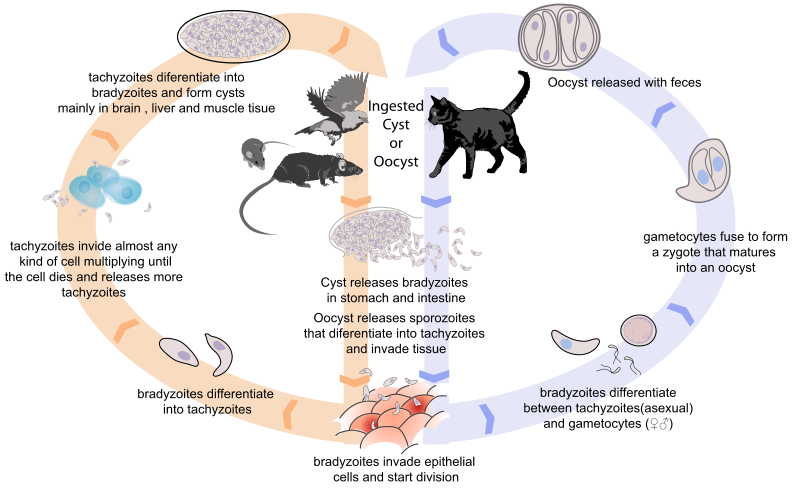Podcast: Play in new window
BOB HIRSHON (host):
Can a cat parasite change our behavior? I’m Bob Hirshon and this is Science Update.
A parasite transmitted by cats called Toxoplasma gondii has serious health effects on fetuses and people with compromised immune systems. But might it also affect behavior? Indiana University researcher William Sullivan writes in the journal PLoS One that in rodent brains, toxoplasma affects cells called astrocytes.
WILLIAM SULLIVAN (Indiana University):
There were a number of proteins that are differentially modified when Toxoplasma infect the cell. Some of these have been linked to neurological disorders of varying kinds.
HIRSHON:
He says Toxoplasma infects about one in four Americans.
SULLIVAN:
So if we find that Toxoplasma does manipulate the host behavior in some way, it’s going to have dramatic repercussions because so many people are infected.
HIRSHON:
Researchers have found behavioral differences between people infected and uninfected with Toxoplasma, but it’s not yet known if the parasite causes the differences. I’m Bob Hirshon, for AAAS, the science society.
NOTE: While pregnant women are cautioned not to change their domestic cats’ litter boxes, simply owning a cat is not considered a significant risk factor for Toxoplasma gondii infection. Humans can become infected through the ingestion of the parasite’s oocysts, which complete their life cycle within cats. Possible risk factors for human infection include consuming unwashed fruits and vegetables, eating undercooked meat, and exposure to oocysts in soil through gardening or sand boxes. For a more complete list, refer to the Center for Disease Control’s website on Toxoplasma infection.

